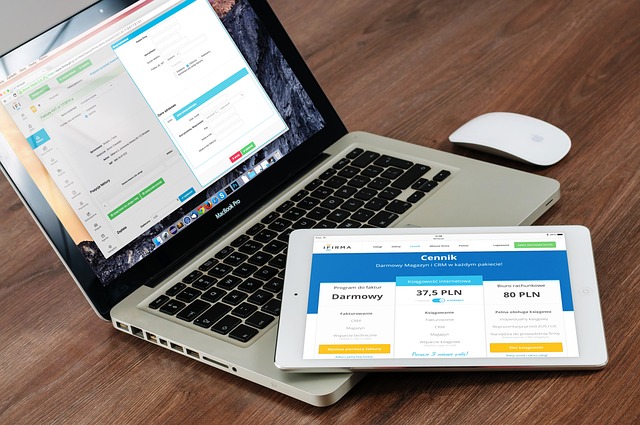What is SAP? Is it a Customer Relationship Management (CRM) tool or an Enterprise Resource Planning (ERP) system? How can we interpret these terminologies in the world of business and technology?
The major confusion lies in differentiating between SAP as a CRM and as an ERP. According to authoritative sources like Investopedia and TechTarget, CRM and ERP are not interchangeable terms. CRM is a tool for managing the organization’s relationships and interactions with customers and potential customers. In contrast, ERP is a suite of integrated applications that an organization can use to manage, store and interpret critical business operations. The problem arises when businesses misunderstand these systems, leading to inappropriate usage and unsuccessful implementation.
In this article, you will learn about the distinct attributes of an ERP and a CRM. We will delve into the functionality of SAP in both these contexts, clarifying the fine line of demarcation between the two. The article also sheds light on how each tool can be optimized in different business scenarios by effectively managing resources and enhancing customer interactions.
Understanding the clear difference between CRM and ERP helps an organization choose the right tool. Making a well-informed decision can be a game-changer in this technology-driven world. SAP, being one of the leaders in this space, can offer significant benefits when utilized properly.

Understanding Basic Definitions: SAP, CRM and ERP
SAP stands for Systems, Applications, and Products in Data Processing. It is a German software company known for its software for businesses.
CRM, or Customer Relationship Management, refers to strategies, technologies, and practices that companies use to manage and analyze interactions and data of their customers throughout the customer lifecycle. The goal of CRM is to improve customer service relationships and assist in customer retention and drive sales growth.
ERP, or Enterprise Resource Planning, is a type of business management software, typically a suite of integrated applications, that an organization can use to gather, store, manage and interpret data from different business activities. SAP provides ERP solutions among other products.
Unraveling the Intricacies of SAP: An Exposition on its Proficiency as an ERP
Understanding SAP’s Forte as an ERP
Primarily, SAP is regarded as an ERP (Enterprise Resource Planning) system, utilized by enterprises worldwide to manage and integrate their major business processes. This is achieved through an impressive array of modules that encompass various operational facets such as financial management, supply chain operations, project management, human resources, and customer relationship management. ERP systems like SAP prevent data silos, provide an all-encompassing view of operations, enable real-time decision-making, and drive overall organizational efficiency and growth.
Business enterprise applications
Microsoft 365 Apps for Enterprise
Enterprise Business apps generator
SAP ERP system’s comprehensiveness and industry-specific customizability have earned it the distinction of being a preferred solution across different verticals. Its power lies in its ability to offer a seamless flow of data across different business tasks and departments, ensuring a unified and consistent view of the entire business landscape.
Unveiling SAP’s Capabilities
- SAP ERP Financials: Provides a spectrum of tools for financial management and accounting.
- SAP ERP Operations: Streamlines procurement, manufacturing, service, sales, and logistics.
- SAP ERP Human Capital Management: Automates fundamental HR processes, talent management, and workforce deployment.
Through these capabilities, SAP ERP ensures optimized operations, improved financial compliance, better capital management, and elevated corporate performance. Its flexibility in catering to different enterprise sizes, from small ventures to mammoth corporations, is truly remarkable.
While it’s accurate to name SAP as an ERP, it’s equally important not to diminish its capability as a CRM tool. SAP’s CRM component is robust and efficient and serves as an integral constituent of its overall ERP offering. It’s instrumental in managing all customer-related data and interactions across the firm, driving customer satisfaction and loyalty. However, it is essential to note that while SAP does maintain CRM functionality, it does not identify solely as a CRM solution.
With this understanding established, SAP’s stature as an ERP is undeniably evident. Its comprehensive set of tools and functionalities makes it a compelling choice for businesses aiming to harmonize their processes, reduce redundancies, and drive efficient decision-making – carving out a path to sustainable growth and success in the hyper-competitive business landscape.
Probing the Possibilities: Defining and Dissecting SAP’s CRM Capabilities
SAP: More Than Just an ERP Tool?
Have you ever wondered if there is more to SAP than just being a powerful enterprise resource planning (ERP) tool? There is, indeed. It is also a potent customer relationship management (CRM) tool. While SAP, an acronym for ‘Systems Applications and Products,’ is globally recognized for its ERP capabilities, its performance as a CRM also deserves a spotlight. An ERP system integrates all essential processes of a company – like supply chain, purchasing, human resources, and customer relationship management (CRM). Whereas a CRM system focuses specifically on managing the company’s interactions with its current and potential customers, it is within this intersection of ERP and CRM that SAP truly shines.
The Predicaments of Deciphering SAP’s CRM
The complexity and seeming overlap of SAP’s CRM and ERP makes it quite challenging to comprehend. It often causes confusion for users who struggle to exploit its full potential. Some users make the common error of relegating SAP solely to the function of ERP. This misconception limits SAP’s abilities and fail to benefit from its extensive capabilities as a CRM. These users miss out on valuable customer insights, better customer experience management, and improved sales and marketing strategies that a CRM can offer.
Embracing SAP’s CRM: Looking Towards Success
For a clearer picture of how SAP’s CRM capabilities can contribute to a company’s success, consider the examples of leading multinational firms like Coca-Cola and Vodafone. Coca-Cola uses SAP’s CRM to manage and improve their interactions with customers, creating personalized marketing campaigns based on data-driven insights. Not only has this significantly improved their sales, but it also facilitates immense customer loyalty. Vodafone, recognized for their customer-centric approach, is another prime example. They utilize SAP’s CRM to optimize their sales processes and improve service quality. Proactive use of SAP’s CRM capabilities like these companies can lead to increased profits, enhanced operational efficiency, and ultimately, elevated customer satisfaction.
Beyond Conventional Understanding: How SAP Transgresses the Traditional CRM and ERP Paradigms
Moving Beyond Conventional Roles: SAP and its Business Software Functions
What happens when a solution transcends the standard definition? SAP, a renowned business software, does just this by expanding beyond typical Customer Relationship Management (CRM) and Enterprise Resource Planning (ERP) functions. On one hand, CRM systems center around managing and analyzing interactions and data throughout the customer lifecycle. On another, ERP solutions are integral for managing core business processes, often in real-time and mediated by software and technology. Yet, SAP straddles these two critical roles and provides a consolidated design that successfully merges CRM and ERP’s primary features into a singular, more dynamic system.
The Challenge of Defining SAP: CRM, ERP, or Both?
The conventional understanding earmarks SAP solely into either the CRM or ERP category. However, this delineation is oversimplified and fails to illuminate SAP’s full potential and multifunction abilities. CRM and ERP have differing focal points: while CRM zeroes in on sustaining relationships and enhancing satisfaction, ERP tends to focus on the seamless execution of business procedures. SAP disrupts this binary by seamlessly blending facets of both systems. It manages customer interactions efficiently while also providing other essential business functions, resulting in an integrated, versatile tool that poses a challenge to straightforward categorization.
Real-World Successful Implementation of SAP: A Beacon of Versatility
Numerous enterprises globally have harnessed SAP’s flexibility for improved operational efficiency. For instance, diverse industries ranging from healthcare to logistics and from manufacturing to retail have successfully used SAP to consolidate disparate business operations into one unified system. By doing so, these companies have not only streamlined their tasks but also improved their interaction and relationship with customers. As a double-edged sword, SAP capably fulfills both CRM and ERP roles within these organizations, demonstrating its ability to extend far beyond conventional understanding. This ideal combination of CRM and ERP capabilities thus positions SAP as an exceptional solution that transcends the traditional paradigms of business software systems.
Conclusion
Could there be a software that seamlessly integrates all facets of your business from customer engagement to operations and financial management? Interestingly, SAP serves as both a Customer Relationship Management (CRM) and Enterprise Resource Planning (ERP) platform, proficiently bridging the gap between multiple business processes.
The shift from traditional business methods to digital practices has compelled businesses to implement such systems that improve the efficiency and productivity of their operations. By examining the aspects that SAP covers, it becomes clear how it adeptly acts as a unified solution provider; allowing businesses to manage all activities under one system effortlessly. As a CRM, it effectively manages all customer interactions and as an ERP, it optimally plans and manages most resources of an enterprise, ultimately improving profitability.
Your continued readership is an affirmation of the insightful content we offer. Stay tuned for upcoming articles that will delve deeper into expansive topics like these, enhancing your knowledge base. The future promises exciting new additions and we can’t wait to share them with you. You can expect fresh content that offers you valuable insights and practical tips to navigate the ever-changing world of digital transformations, optimisation of business processes, and maximising profitability. Don’t miss out on our upcoming pieces – your trust fuels our determination to research and deliver only the best.
In conclusion, SAP, with its dual functionality as a CRM and ERP, addresses every aspect of your business procedures, making it a comprehensive tool necessary for success in today’s technology-driven business environment. Don’t forget to follow our blog to stay updated with the latest trends, research, and updates. Let’s learn, evolve, and thrive together with the power of knowledge coming your way.
F.A.Q.
FAQ
1. What is SAP?
SAP is a multinational software corporation based in Germany that works on creating enterprise software to manage business operations. The company’s best-known software products are its enterprise resource planning (ERP) systems.
2. Is SAP a CRM or an ERP system?
SAP makes both ERP and CRM systems. However, the company is most renowned for its ERP software that aids in managing key business processes in an integrated system.
3. What is the difference between CRM and ERP?
CRM focuses on managing the company’s relationship with its customers, while ERP integrates multiple processes that are essential to running a business, including inventory and order management, accounting, HR, and customer relationship management. ERP is like an umbrella that may comprise of a CRM as a component.
4. What does SAP ERP offer to businesses?
SAP ERP offers an integrated suite of applications that covers virtually every aspect of business management. Some of the core functions include finance, HR, manufacturing, supply chain, services, procurement, and others.
5. Can SAP CRM be used independently of its ERP?
Yes, SAP CRM is a stand-alone product that can be used independently of SAP ERP. However, businesses typically prefer to use them together as they provide greater value when integrated.



